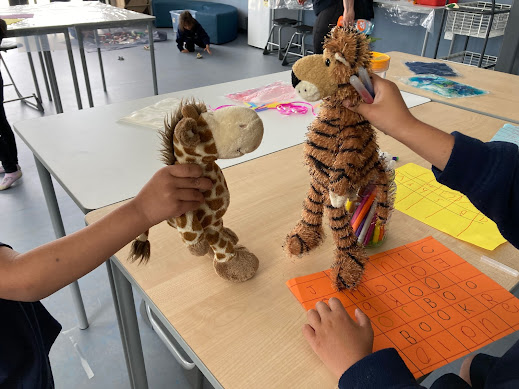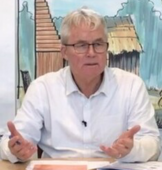Bruce D Perry
Bruce D Perry just blew my mind!! I watched this video and it really resonated with me. I've been reflecting on it and making connections and letting it really get into my imagination.
A few key points that I took from it:
Perry started his talk with this quote:
- The proper time to influence the character of a child is about a hundred years before he is born.
- one of our strengths as human beings is our relational connectedness. Throughout our history this has been essential for our survival. Individuals don't survive. Groups/communities/clans/communities do survive.
- Growing up in a communal family arrangement, a baby would have ration of 4:1 adults interacting with the child. Now, in our early childhood centres we are lucky if we have a ratio of 1 adult to 6 kids.
- Today many people are living alone and many people are living in households with less than 3 people. Throughout much of our history, people lived in households with 20+ people.
- our ability to invent technology is way outstripping our ability to solve the problems that come with the technology. Eg. It seems like our phone is the master of us, rather than us being the master of our phone, because we are always responding to the beeps and buzzes of our phone. Our phone is rewarding our brain instead of the relational connectedness that has rewarded us for thousands of years.
- children growing up today have a lot less relational interactions than they did 90 years ago. As a result it could take until 15 years of age to get the same number of relational interactions as a 6 year old, born in the 1930s (screens are playing a very big part in this).
- The value in American culture is: have your own house, with your own room with your own screen. It comes at a cost - relational connectedness. Perry cited a study and the conclusion of that authors was... "The culture has moved away from intrinsic goals such as community, meaning in life and affiliation, to extrinsic goals such as material items, status, etc."
- As a society, if we invested the time and money into providing the very best environment for babies/toddlers, it would have a huge pay off.
My reflections:
I really connected with this because, as a family, we have felt isolated during lockdown. As Perry said, it's hard raising kids, let alone having to do it without support. Even before lockdown, I've been longing for more connectedness. I look around at my community (Papakura) and think, 'we need each other'
I think of our Māori whānau who in recent history lived in community hapu/iwi. I think we could learn a lot from that way of life.
I think of my Samoan, Tongan, and Pacific Island neighbours and I envy their togetherness, the way they come together to support and love each other, especially in grief and celebrations. I have a lot to learn from their way of life.
I think about my neighbours and I wonder what would happen if we took down our fences, shared our yards and ate together.
I think about our schools which can be (in general) quite isolated from their communities. People come and people go. But do people connect??
Michelle mentioned Bruce D Perry's work to me and I'm really glad she did. I think this is something that is going to continue to percolate in me.



I enjoy reading your thoughtful and considered reflections, Simon.
ReplyDeleteWhen I started teaching I moved from my hometown of Christchurch to Tūrangi - where I'd never been nor knew anything about. It was such a good decision. I learned so much, there was such a mismatch between life in Tūrangi and things I thought I 'knew'. The visibility and strong sense of culture, te reo, kai, community, support, respect and coming together/inclusivity was amazing. I'm so grateful for that time and it was so different to how I'd lived, and how I live now. I miss it.
I recently watched this video of Dr Bruce Perry and Oprah on trauma and healing which maybe of interest too. https://www.youtube.com/watch?v=oMizWiJc4OA
And I have one of his books I can share with you too, let me know if you want it.
HI Simon, this is so true. If I think of my father's family, they were 7 siblings, I grew up in a family with 3 other siblings, and then we only had 2 children. I think families seem to be shrinking, often due to time constraints (working parents) and money. Isn't it sad. I used to love family gatherings because I could connect with all my aunts and uncles, cousins and grandparents. Then throw in the mix immigration, and all of a sudden I find myself with no family. My children will never have the privilege of a great family gathering. And as you say, this is so important in celebrations and grief. Therefore we try and make friends, but that in itself is pretty hard with a full schedule. You don't have to invest so much time with family as you do with friends, because family you just know. I wonder what we can do to really connect with our community? And connecting on a deeper level than just greeting and chatting about everyday things. I will add Dr Bruce Perry to my to do list. Sounds like he has some very valuable information to share.
ReplyDeletePS I like your idea of taking the fences down. A bit like taking the walls down in school and creating open spaces.
Hi Alida, Thanks for your thoughts. I think it's very insightful what you say about the difference between friends and family. And COVID has made us even more isolated. One of the things I'm really looking forward to is feeling more able to invite others around for a meal because so much "community" happens around food.
Delete